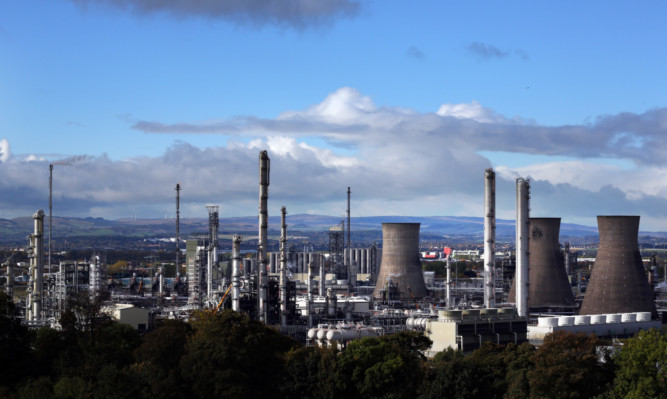There may well be signs that Scottish Government ministers are emerging from the Dark Ages and beginning to treat scientific advancement more seriously.
The SNP, a party that has long linked itself to anti-science thinking (or, more accurately, lack of thinking), has announced that it will spend £135,000 on research into fracking.
This is something of an about-turn for the nationalists, whose leader, Nicola Sturgeon, told the Scottish Parliament only last week she was “highly sceptical” of drilling for shale gas, a process that has transformed energy provision in the US in less than a generation.
Sturgeon announced a moratorium on fracking in January 2015, when there had been little investigation into its viability in Scotland, and despite the potential for shale gas production to boost this country’s economy and slash power bills.
The SNP’s position to date has been at odds with the rest of the UK, where more than 150 licences for onshore oil and gas exploration were handed out last year, to the delight of the industry in England.
Ken Cronin, chief executive of United Kingdom Onshore Oil and Gas, said: “At the beginning of this century, we were energy independent, producing enough oil and gas from the North Sea to provide for everyone in the UK.
“Today we are dependent for nearly 50% of our oil and gas from overseas and that is going to rise to over 75% in the next 15 years without further onshore production.”
Private assurances
One of the companies committed to exploiting shale gas reserves is Ineos, Scotland’s largest petrochemical plant, which won 21 of the licences in England.
It is the group’s chairman, Jim Ratcliffe, who is pushing for the industry to be kick-started in Scotland and Finance Minister John Swinney has reportedly held talks with him.
According to one recent report, Ratcliffe said he was given private assurances by the SNP that it is not opposed to the technique.
This is very encouraging, considering the SNP is likely to win May’s Holyrood election and remain in charge of Scotland’s energy policy for the foreseeable future. With the current crisis in the oil sector and a fragmented and intermittent renewables strategy, other alternatives must be considered.
In North America, the fracking revolution has brought a windfall for GDP and for individual consumers, who pay lower natural gas prices and have more disposable income.
What’s more, reduced energy costs have encouraged investment in manufacturing.
The likes of Jim Ratcliffe, driven by economic rather than political interests, are optimistic that the UK could experience its own fracking revolution that will boost manufacturing here as it has done in the States.
And the workforce of his Grangemouth complex and local businesses will stand to gain, too, as Courier reader Bob Taylor pointed out on Monday.
Luddite tendencies
But up to now, our ministers presumed to know better. The SNP, always keen to court the pro-separatist Green vote, has instinctive Luddite tendencies.
Last year it banned genetically modified crops to protect Scotland’s “green” reputation, much to the horror of scientists who claimed the decision was irrational and emotive.
The Royal Society of Edinburgh warned that that ban would backfire by increasing farms’ existing reliance on chemical fertilisers and pesticides.
It also said the SNP’s stance was more dependent on focus groups than on expert advice, and assumed a degree of public hostility towards GM that wasn’t supported by surveys.
The SNP’s apparent change of heart over fracking could be less to do with any ideological volte face and more a sudden case of financial realism.
Ratcliffe has said he will have to import shale gas from the US if he cannot produce his own in Scotland, which would not make economic or ecological sense. If we do have another valuable natural resource on our doorstep then why waste it?
Scottish Labour, which doesn’t have to balance the country’s budget, supports a fracking ban and is trying to make political capital over the difference opening up between it and the SNP on the issue.
Labour MSP Neil Findlay demanded Sturgeon “come clean” and either support an outright ban, like Labour, or say if she will give the industry the green light if research says it’s safe.
But it is Labour that will look foolish if researchers find there is no environmental risk and they have pledged themselves regardless to a moratorium.
Sturgeon must refuse to make this an election battleground it is too important to Scotland’s future prosperity and let the teams she has hired get on with their investigations.
Who knows? If she can quell her personal squeamishness to fracking, perhaps there is hope, too, for the development of GM technology.
We mustn’t get too excited but Scotland, even under the SNP, may one day take its place in the 21st Century after all.
